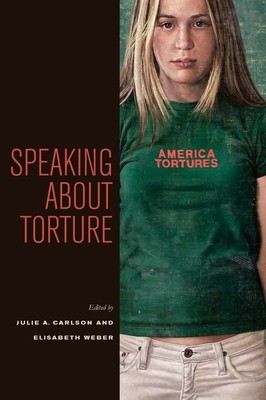
- We will send in 10–14 business days.
- Publisher: Fordham University Press
- ISBN-10: 0823242242
- ISBN-13: 9780823242245
- Format: 15.5 x 22.9 x 2.5 cm, hardcover
- Language: English
- SAVE -10% with code: EXTRA
Speaking about Torture (e-book) (used book) | bookbook.eu
Reviews
Description
This collection of essays is the first book to take up the urgent issue of torture from the array of approaches offered by the arts and humanities. In the post-9/11 era, where we are once again compelled to entertain debates about the legality of torture, this volume speaks about the practice in an effort to challenge the surprisingly widespread acceptance of state-sanctioned torture among Americans, including academics and the media-entertainment complex. Speaking about Torture also claims that the concepts and techniques practiced in the humanities have a special contribution to make to this debate, going beyond what is usually deemed a matter of policy for experts in government and the social sciences. It contends that the way one speaks about torture-including that one speaks about it-is key to comprehending, legislating, and eradicating torture. That is, we cannot discuss torture without taking into account the assaults on truth, memory, subjectivity, and language that the
humanities theorize and that the experience of torture perpetuates. Such accounts are crucial to framing the silencing and demonizing that accompany the practice and representation of torture.
EXTRA 10 % discount with code: EXTRA
The promotion ends in 13d.12:16:29
The discount code is valid when purchasing from 10 €. Discounts do not stack.
- Publisher: Fordham University Press
- ISBN-10: 0823242242
- ISBN-13: 9780823242245
- Format: 15.5 x 22.9 x 2.5 cm, hardcover
- Language: English English
This collection of essays is the first book to take up the urgent issue of torture from the array of approaches offered by the arts and humanities. In the post-9/11 era, where we are once again compelled to entertain debates about the legality of torture, this volume speaks about the practice in an effort to challenge the surprisingly widespread acceptance of state-sanctioned torture among Americans, including academics and the media-entertainment complex. Speaking about Torture also claims that the concepts and techniques practiced in the humanities have a special contribution to make to this debate, going beyond what is usually deemed a matter of policy for experts in government and the social sciences. It contends that the way one speaks about torture-including that one speaks about it-is key to comprehending, legislating, and eradicating torture. That is, we cannot discuss torture without taking into account the assaults on truth, memory, subjectivity, and language that the
humanities theorize and that the experience of torture perpetuates. Such accounts are crucial to framing the silencing and demonizing that accompany the practice and representation of torture.


Reviews